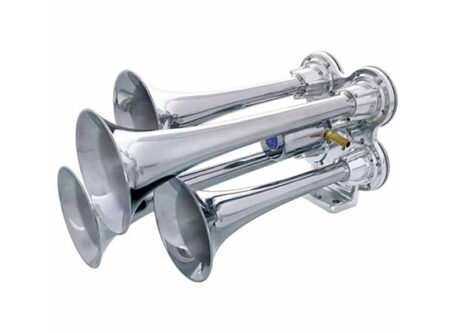Autonomous trucks restriction pursued in multiple statehouses
A growing trend in statehouses from coast to coast is to pursue rules that would limit the use of autonomous trucks on state roadways. Legislators in two states have already introduced legislation for consideration in the coming weeks and months to address the issue.
Indiana
One Indiana Senate bill would modify autonomous vehicle rules in the state.
Indiana law authorizes automated vehicle platooning to operate “at speeds and following distances that are faster and closer than would be reasonable and prudent without electronic coordination.” There is no rule in place that covers whether a human operator is required to be present in affected vehicles.
Sen. Jim Tomes, R-Wadesville, and Rep. Cindy Ledbetter, R-Newburgh, are behind bipartisan legislation to expand the statute to specify that a person may not operate an autonomous tractor-trailer on a highway to transport passengers or goods unless a human operator is physically present in the affected vehicle.
Operators also must meet all state and federal qualifications to operate a vehicle and an automated vehicle.
“With new technology on the horizon and more self-driving vehicles being used on our roadways, it is important our laws reflect these changes to keep Hoosiers safe,” Tomes said in prepared remarks. “Driverless vehicles, especially large trucks, could pose a danger on our public roads if not monitored properly.”
Each bill, HB1022 and SB57, is in its chamber’s respective transportation committee.
New York
A similar pursuit is underway in New York.
Currently, state law has no requirements for large vehicles to have a human in the cab capable of taking control of the vehicle in case of emergency.
Sen. Pete Harckham, D-Peekskill, introduced a bill that would require operators to accompany trucks with autonomous operating technology while traveling the state’s roadways. The rule would apply to autonomous vehicles in excess of 10,000 pounds.
“The integral role of the trucking industry in our lives means we have to be proactive and vigilant about public safety and job security when it comes to technological innovations like autonomous operating vehicles,” Harckham stated.
He added that his common-sense measure also would provide job security for more than 270,000 New Yorkers – one out of every 27 jobs in the state.
“The trucking industry is the backbone to middle-class social mobility, but unfortunately these good-paying jobs are under attack,” he said.
The bill, S7758, is in the Senate Transportation Committee.
Similar pursuit vetoed in California
In September, California Gov. Gavin Newsom vetoed similar legislation.
State lawmakers voted overwhelmingly to approve legislation that would prohibit operation of vehicles with a gross vehicle weight of at least 10,001 pounds for testing purposes, transporting goods or transporting passengers without a “human safety operator physically present” in the vehicle during operation.
Newsom said he vetoed the bill because it is “unnecessary” for the regulation and oversight of heavy-duty autonomous vehicle technology in the state. In his veto message, he highlighted a 2012 state law that provides the DMV with the authority to regulate the testing and deployment of autonomous vehicles on state roadways.
“Existing law provides sufficient authority to create the appropriate regulatory framework,” Newsom wrote.
He added that the DMV “continuously monitors the testing and operations of autonomous vehicles on California roads and has the authority to suspend or revoke permits as necessary to protect the public safety.”
Both sides of issue
Truck platooning advocates argue the technology saves fuel due to reduced aerodynamic drag, lessens traffic congestion and improves highway safety. Some supporters acknowledge it works best on relatively flat, divided highways outside of populated areas.
Critics question how automated vehicles and traditional vehicles will interact on roadways. Others doubt whether widespread use of the technology is realistic.
The Owner-Operator Independent Drivers Association recognizes that the rapid development of autonomous technology has a lot of potential. However, the Association believes the technology poses challenges as it relates to commercial vehicles and highway safety. LL









